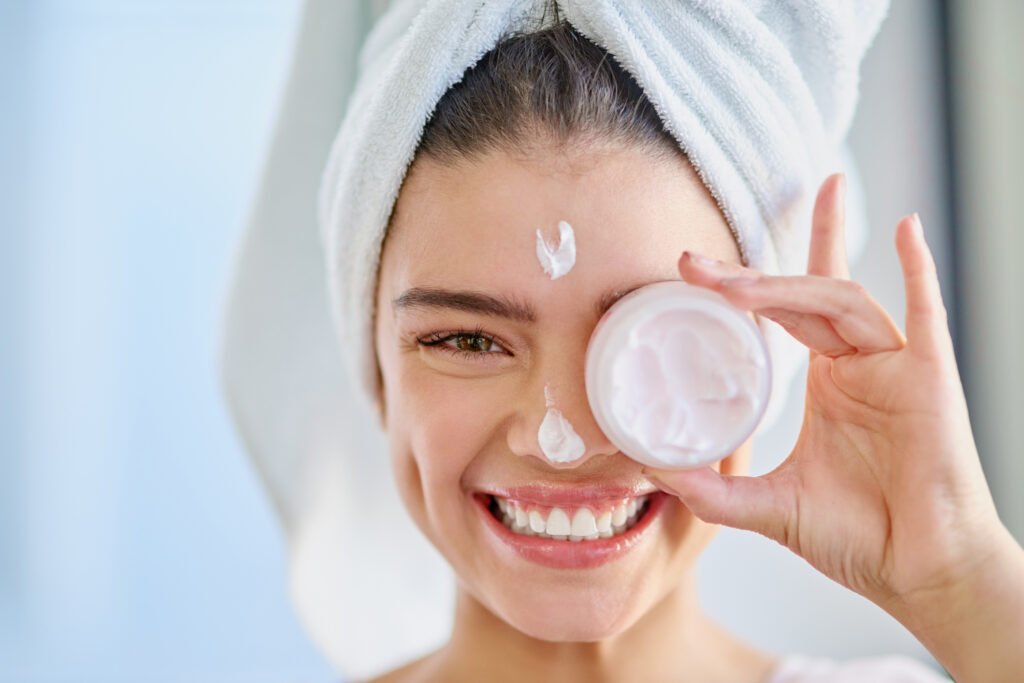Skincare basics might seem simple, but there’s a rich history, diverse techniques, and deep science behind them. Whether you’re just starting your skincare journey or are already a seasoned pro, understanding skincare basics can make all the difference. This article is divided into key sections to guide you through the essentials:
- What Are Skincare Basics?
- A Brief History of Skincare
- Why Skincare Is So Important
- The Different Forms and Methods of Skincare
- Understanding Different Skin Types
Each section offers valuable insights, designed to help you grasp the full picture of skincare, from its origins to the best practices for your unique skin type. At Derma Advance, we’re committed to providing top-notch treatments and educating our clients on the best ways to care for their skin. Let’s dive into the fascinating world of skincare together!
Table of Contents
What Are Skincare Basics?
Skincare basics are more than just applying creams and serums; they involve nurturing and protecting your skin—the body’s largest organ. In today’s environment, with exposure to pollutants, UV radiation, and stress, understanding and practicing skincare basics is essential for maintaining both health and confidence.

The Four Pillars of Skin Care:
Treating: Addressing specific skin concerns with targeted products
Cleansing: Removing impurities, excess oil, and dead skin cells
Moisturizing: Hydrating and nourishing the skin
Protecting: Shielding the skin from environmental damage
The Importance of a Good Skin Care Routine
Health Benefits
- Enhanced Barrier Function: A proper routine strengthens your skin’s natural defense against environmental stressors and pathogens.
- Prevention of Skin Issues: Regular care can help prevent acne, premature aging, and other skin problems.
- Improved Skin Cell Turnover: Consistent care promotes faster regeneration of skin cells, leading to a fresher, more youthful appearance.
Psychological Benefits
- Boosted Self-Confidence: Healthy, clear skin can significantly improve self-esteem.
- Stress Reduction: The ritual of skin care can be a calming, meditative practice in your daily routine.
Long-Term Advantages
- Delayed Signs of Aging: Proper skin care can slow down the appearance of fine lines, wrinkles, and age spots.
- Cost-Effectiveness: Preventing skin issues is often less expensive than treating them after they’ve developed.

Essential Components of a Skin Care Routine
1. Cleansing: The Foundation of Healthy Skin
Cleansing is crucial for removing dirt, oil, dead skin cells, and other impurities that can clog pores and lead to skin issues.
Types of Cleansers
- Gel Cleansers: Great for oily or acne-prone skin
- Cream Cleansers: Ideal for dry or sensitive skin
- Foam Cleansers: Suitable for combination skin
- Oil Cleansers: Effective for removing makeup and sunscreen
Best Practices for Cleansing
- Use lukewarm water (hot water can strip natural oils)
- Cleanse twice daily: morning and night
- Be gentle – avoid harsh scrubbing
- Pat dry with a clean towel instead of rubbing
2. Moisturizing: Hydration is Key
Moisturizing is not just a step in your skincare routine; it’s essential for maintaining healthy, glowing skin. In India’s diverse climate, where skin faces both harsh sun and cold winds, keeping your skin hydrated is crucial. Hydration locks in moisture, preventing dryness, flakiness, and premature aging. Your skin’s natural barrier, which protects against environmental damage, can weaken without proper hydration. Whether you have oily, dry, or combination skin, choosing the right moisturizer is key to keeping your skin balanced and resilient.
Understanding Moisturizer Ingredients
- Humectants (e.g., glycerin, hyaluronic acid): Draw water into the skin
- Emollients (e.g., ceramides, fatty acids): Soften and smooth the skin
- Occlusives (e.g., petrolatum, silicones): Create a barrier to prevent water loss
Choosing the Right Moisturizer
- Consider your skin type (oily, dry, combination, sensitive)
- Look for non-comedogenic products if you’re prone to acne
- For oily skin, opt for lightweight, water-based moisturizers
- For dry skin, choose richer, oil-based formulas
3. Sun Protection: Your Skin’s Best Defense
Sun protection is essential year-round, not just in summer, for maintaining healthy, youthful skin. In India, where intense sun exposure is common, protecting your skin from harmful UV rays is crucial. The sun’s rays can lead to premature aging, dark spots, and even skin cancer. Daily exposure, even briefly, can cause long-term damage if your skin isn’t properly protected. Using sunscreen daily is the most effective way to shield your skin from these risks.
Understanding SPF
- SPF (Sun Protection Factor) measures protection against UVB rays
- Broad-spectrum sunscreens protect against both UVA and UVB rays
Effective Sun Protection Strategies
- Use a broad-spectrum sunscreen with at least SPF 30 daily
- Apply sunscreen 15-30 minutes before sun exposure
- Reapply every 2 hours or after swimming/sweating
- Don’t forget often-missed areas like ears, neck, and hands
- Complement sunscreen with protective clothing and seeking shade
4. Exfoliation: Revealing Fresh, Glowing Skin
Exfoliation is key to revealing fresh, glowing skin by removing dead cells and impurities that dull your complexion. Regular exfoliation not only enhances your skin’s texture but also boosts the effectiveness of your skincare products. In India’s varied climate, exfoliating your skin helps combat the effects of pollution and environmental stress, leaving your skin smooth, clear, and radiant. Whether you choose a physical scrub or a chemical exfoliant, making this step a regular part of your routine is essential for achieving and maintaining a healthy, vibrant complexion.
Types of Exfoliants
- Physical Exfoliants: Scrubs, brushes, or cloths that manually remove dead skin cells
- Chemical Exfoliants:
- Alpha Hydroxy Acids (AHAs) like glycolic acid: Best for dry, sun-damaged skin
- Beta Hydroxy Acids (BHAs) like salicylic acid: Ideal for oily, acne-prone skin
Safe Exfoliation Practices
- Start with once a week and gradually increase if needed
- Don’t over-exfoliate – this can damage your skin barrier
- Always follow with moisturizer and sunscreen
5. Targeted Treatments: Addressing Specific Skin Concerns
Targeted treatments are essential for addressing specific skin concerns like acne, hyperpigmentation, and fine lines. These treatments are designed to directly combat the issues affecting your skin, delivering potent ingredients where they’re needed most. In India’s diverse climate, customized solutions can help tackle concerns unique to your skin type and environment. Incorporating targeted skincare treatments into your routine ensures that you’re not just maintaining your skin, but actively improving its health and appearance by addressing the root of specific problems.
Acne
- Salicylic Acid: Unclogs pores and reduces inflammation
- Benzoyl Peroxide: Kills acne-causing bacteria
- Retinoids: Unclog pores and promote cell turnover
Hyperpigmentation
- Vitamin C: Brightens skin and fades dark spots
- Niacinamide: Reduces inflammation and evens skin tone
- Kojic Acid: Inhibits melanin production
Fine Lines and Wrinkles
- Retinoids: Boost collagen production and cell turnover
- Peptides: Support skin structure and firmness
- Antioxidants: Protect against free radical damage
Building Your Personalized Skin Care Routine
Basic Daily Routine
- Cleanse
- Tone (optional)
- Apply targeted treatments (serums)
- Moisturize
- Apply sunscreen (during the day)
Nighttime Additions
- Makeup removal (if needed)
- Heavier moisturizers or overnight masks
- Treatments that increase sun sensitivity (e.g., retinoids)
Customizing Your Routine
- Consider your skin type and specific concerns
- Introduce new products gradually, one at a time
- Be consistent and patient – results often take 4-6 weeks to show
The Role of Lifestyle in Skin Health
Diet and Nutrition
- Stay hydrated by drinking plenty of water
- Consume foods rich in antioxidants (berries, leafy greens)
- Include omega-3 fatty acids in your diet (fish, walnuts, flaxseeds)
- Limit sugar and processed foods, which can contribute to inflammation
Sleep and Stress Management
- Aim for 7-9 hours of quality sleep per night
- Practice stress-reduction techniques like meditation or yoga
- Regular exercise can improve circulation and promote healthy skin
When to Consult a Dermatologist
Consulting a dermatologist is essential when facing persistent skin issues or unusual changes. If you’re dealing with ongoing acne, unusual skin growths, or severe hair and scalp problems, professional advice is crucial.
Key Points:
- Persistent Skin Problems: Ongoing issues like acne or rashes.
- Moles and Skin Growths: Changes in moles or new growths.
- Hair and Scalp Issues: Severe dandruff or hair loss.
- Skin Sensitivity: Unusual reactions to skincare products.
- Aging Concerns: Wrinkles or age spots needing specialized treatments.
If you notice any of these issues, seeking expert help from a dermatologist at Derma Advance can ensure you get tailored solutions and maintain healthy skin.
Conclusion: Your Journey to Healthy Skin Starts Today
Skincare basics are more than just routines—they’re an investment in your health and confidence. By understanding and applying these principles, you can achieve the glowing skin you deserve.
- Identify Your Skin Type: Tailor your routine to your unique needs for the best results.
- Consistency is Key: Daily care, like cleansing and moisturizing, keeps your skin healthy.
- Protect and Prevent: Sunscreen and the right products can protect your skin from future damage.
At Derma Advance, we’re here to help. Our personalized consultations and expert advice make it easy to create a routine that works for you. Remember, healthy skin reflects overall wellness, and it’s never too early or late to start. Let’s achieve your best skin together. To explore more visit our website.
